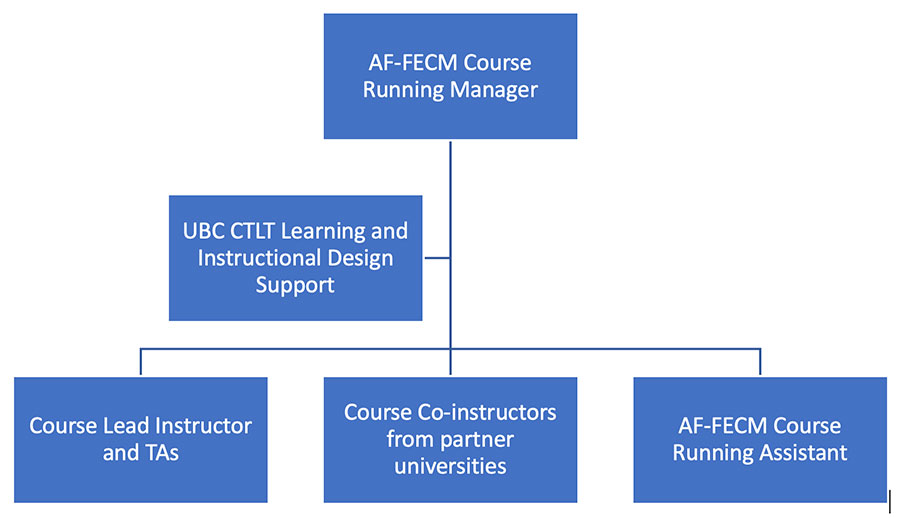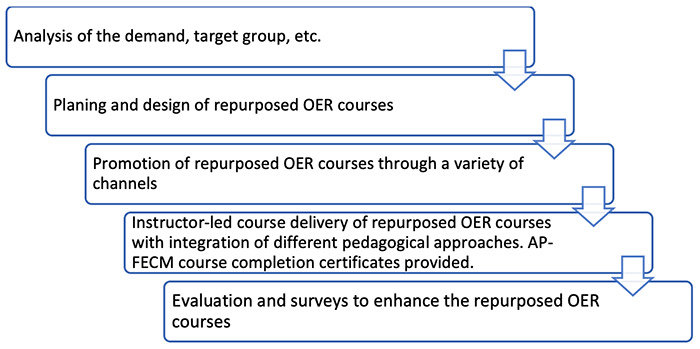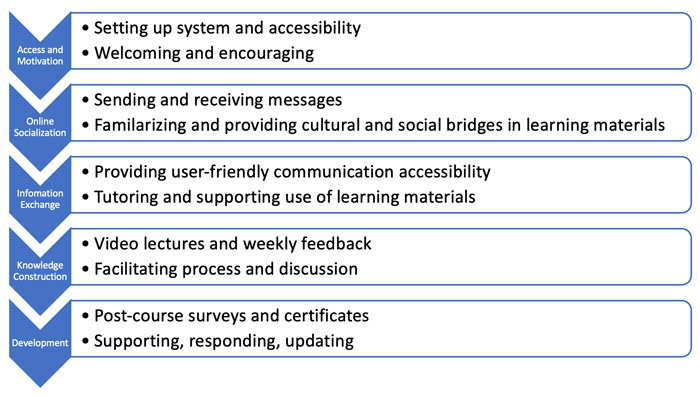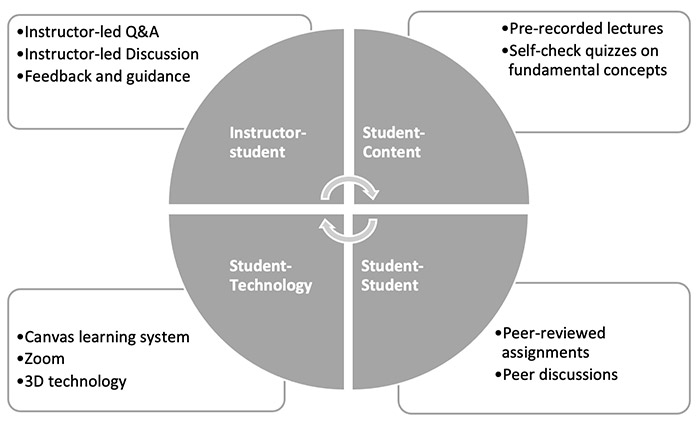With the existing OER courses, to assist participating universities in improving forest education quality to build capacity in sustainable forest management in the Asia Pacific region, AP-FECM EO had gradually established the AP-FECM Repurposed OER Course Completion Certificate Program starting in 2016.
Re-purposed Sessions Offered
- Instructor-led pilot sessions during 2016-2018
Four instructor-led repurposed OER courses were piloted between 2016 to 2018. About 100-150 students from various partner universities in the Asia-Pacific region participated in each offer. Each of the repurposed Sustainable Forest Management in a Changing World (FODE 001-OER) and Restoration of Degraded Forest Ecosystems and Forest Plantation Development (FODE 005-OER) courses were held twice as the open enrolment pilot courses. In total, 701 students from 8 universities joined the courses. Learners were asked to study course materials, conduct fieldwork and share localized practical experience in group discussions. Based on the experience of the pilot sessions, the AP-FECM Repurposed OER Course Completion Certificate Program was developed for later offerings to various participants across cultures and country boundaries.
- Instructor-led sessions during spring and summer terms 2019-2020
There was one regular-size instructor-led repurposed OER course provided in 2019 and 8 large-scale instructor-led repurposed OER courses being offered in 2020 amid the global COVID-19 pandemic. All these courses have attracted over 1500 students from 32 Chinese partnering universities. Other than delivering high-quality education in SFM, an international collaborative teaching and learning community had been built through the course offerings in 2020 with more than 35 instructors from UBC and universities in China involved.
- Instructor-led Sessions during winter term 2020-2021
The COVID-19 pandemic had affected educational systems worldwide, leading to the cessation of normal practices at schools, colleges, and universities. As an immediate response to the globally spread virus, five repurposed SFM OER courses were extended to the broader Asia Pacific region in the fall of 2020. The project was a success on all fronts, with more than 1000 students registered for the courses. Students enrolled from across the Asia Pacific including forestry universities and institutes from China, Vietnam, Indonesia, Philippines, Nepal, Japan, Malaysia, Thailand, Laos, Mongolia, Burma, Cambodia, and Chile. These courses were selected based on feedback from students and instructors, as well as from the experiences drawn from the previous implementation of open online courses.
- Instructor-led Sessions in Virtual Summer Camps
Since 2020 amid the global COVID-19 pandemic, the Asia Forest Research Center and AP-FECM EO have been offering the Virtual Summer Camps with specific themes of packaged courses each year. For each themed package, one SFM OER online course is repurposed as asynchronized course, combined with another synchronized course. In July 2020, the Virtual Summer Camp started with one package and attracted 60 students from 11 universities in the Asia Pacific region. In July 2021, the Virtual Summer Camp was extended to 3 packages, with 115 students from 11 universities registered for the Camp. In July 2022, four packages will be delivered and 225 students from 16 universities in the Asia Pacific regions will join the Virtual Summer Camp.
Implementation Models Practiced
The Executive Office of the AP-FECM established and practiced the following course operation model for repurposed OER courses.

Fig 1. Team-based Course Operation Model
The following process were followed in designing, promoting, delivering, and enhancing the repurposed OER courses.

Fig 2. Repurposed OER Course Development and Implementation Process
To better engage and retain students in this type of open-access non-credit online courses, multiple facilitation and support approaches have been adopted, some of which are shown in the following figure.

As a result, interactions between student-instructor, peer-peer, and student-content were rich and meaningful. Course analytics have been embedded in the system to track and monitor the course progress.
